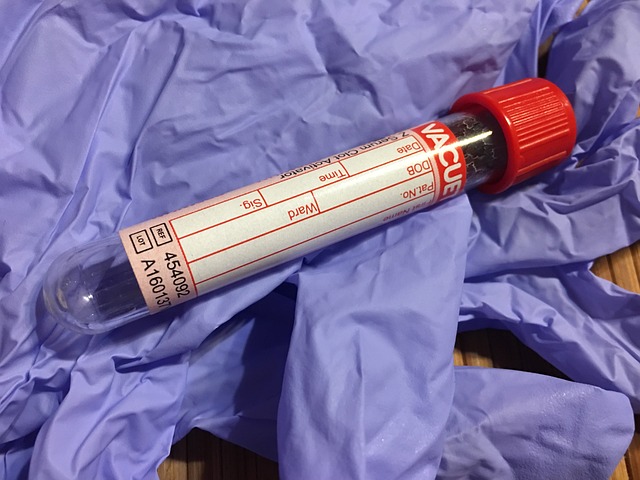Advanced Liver Function Tests (ALFTs), like UK Vitamin D Blood Tests, are crucial diagnostic tools for healthcare professionals, offering detailed insights into liver health and aiding in the early detection of chronic liver diseases. These tests detect subtle abnormalities, monitor medication impacts, and identify nutrient deficiencies, enabling timely interventions and personalized treatment plans that lead to improved patient outcomes. In the UK, where Vitamin D blood tests are prevalent, a comprehensive approach combining test results with patient history, symptoms, and lifestyle factors is vital for tailored care.
Advanced liver function tests offer medical professionals a deeper understanding of liver health, beyond standard markers. These comprehensive assessments, like the UK Vitamin D Blood Test, provide critical insights for accurate diagnosis and tailored treatment plans. By integrating such advanced testing, healthcare providers can unlock the full potential of liver care, enhancing patient outcomes and managing chronic liver conditions effectively. This article explores these tests’ indications, benefits, and key components, focusing on the UK Vitamin D Blood Test as a game-changer in comprehensive liver evaluation.
- Understanding Advanced Liver Function Tests: Indications and Benefits
- The UK Vitamin D Blood Test: A Key Component for Comprehensive Assessment
- Interpretation and Management: Unlocking the Potential of Advanced Liver Function Analysis
Understanding Advanced Liver Function Tests: Indications and Benefits
Advanced liver function tests (ALFTs) are a crucial diagnostic tool for medical professionals, providing in-depth insights into liver health. These tests go beyond basic measurements, offering a comprehensive evaluation of various liver enzymes and proteins. In the UK, vitamin D blood tests are an excellent example of ALFTs, as they can detect subtle abnormalities that may indicate underlying liver issues.
The indications for performing ALFTs are wide-ranging, from evaluating chronic liver diseases like hepatitis to monitoring the effects of medications or toxic substances on the liver. The benefits are significant, enabling early detection and management of liver damage, which is particularly important as many liver conditions have no specific symptoms in their early stages. By incorporating advanced tests like vitamin D blood assessments into routine examinations, healthcare providers can ensure timely interventions and improve patient outcomes.
The UK Vitamin D Blood Test: A Key Component for Comprehensive Assessment
The UK Vitamin D Blood Test is a crucial component in the comprehensive assessment of liver function, offering medical professionals a valuable insight into overall health and specific nutrient levels. This test measures the concentration of vitamin D in the blood, which plays a pivotal role in various physiological processes, including bone health and immune system regulation. Deficiencies in vitamin D have been linked to an increased risk of liver diseases, highlighting its significance in routine evaluations.
By incorporating the UK Vitamin D Blood Test into their arsenal, healthcare providers can identify potential nutrient deficiencies or excesses that may impact liver health. This early detection allows for timely interventions and tailored treatment plans, ultimately contributing to better patient outcomes. Advanced testing methods enable medical professionals to navigate the complex landscape of liver function, ensuring a more holistic approach to patient care.
Interpretation and Management: Unlocking the Potential of Advanced Liver Function Analysis
Advanced liver function tests offer a deeper understanding of liver health, going beyond basic markers. By analysing a range of enzymes, proteins, and other substances, medical professionals can uncover subtle abnormalities that may indicate underlying issues. For instance, an elevated level of alanine aminotransferase (ALT) could suggest hepatitis or inflammation, while gamma-glutamyl transferase (GGT) elevation may point to alcohol abuse or biliary tract problems.
Interpretation and management strategies for these advanced tests are crucial in patient care. In the UK, where Vitamin D blood tests are also commonly performed, a holistic approach is essential. Medical professionals should consider not only the test results but also patient history, symptoms, and lifestyle factors. For example, high GGT levels in a patient with a history of alcohol consumption might prompt a review of their drinking habits, alongside potential treatment options for liver disease prevention or management.
Advanced liver function tests, such as the UK Vitamin D Blood Test, offer medical professionals a comprehensive tool for assessing liver health. By integrating this key component into routine evaluations, healthcare providers can gain valuable insights, enabling more effective management and treatment strategies. Through advanced analysis, we unlock the potential to detect subtle abnormalities early on, ultimately improving patient outcomes in liver-related conditions.
